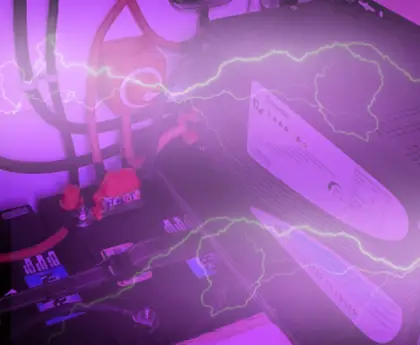Are you wondering how to get free solar panels from the government? It’s a common question, especially given the popularity and efficiency of this form of renewable energy.
No, you can’t get free solar panels from the government. However, some government agencies have programs that subsidize solar panels for low-income households that meet certain criteria.
Truth be told, many governments offer financial incentives to promote the use of solar panels. While not free, these incentives will reduce the cost of installation. This makes going solar much more affordable.
In this guide, we will details all the possibilities of solar incentive and which government programs offer potential savings on solar panel installations.
Ready to dive in? Let’s go green!
Exploring the Possibility of Free Solar Panels
Government programs and incentives exist to provide free solar panels to eligible individuals, helping them transition to renewable energy sources and reduce their carbon footprint.
Understanding the concept of “free” solar panels
“Free” solar panels don’t mean you’ll receive physical panels at no cost. Instead, it refers to programs that offset the purchase price and installation costs of your solar system.
These initiatives can include federal tax credits, state incentives, and other financial assistance programs designed to make solar energy more attainable for all homeowners. The end result is a drastic reduction in out-of-pocket expenses for those installing solar systems, making them virtually “free.” It’s important to understand this distinction before exploring government or private sector programs offering free solar energy options.
Government programs and incentives for solar panel installation
Government programs and incentives play a crucial role in promoting solar panel installation. These initiatives are designed to make renewable energy more accessible and affordable for homeowners.
One example is the federal Investment Tax Credit (ITC), which allows homeowners to claim a tax credit of up to 26% of their solar panel installation costs. In addition, many states offer their own incentives, such as rebates or grants, to further reduce the upfront costs of installing solar panels.
Some local governments also have specific programs targeting low-income households or senior citizens, providing additional financial support for solar panel installations. By taking advantage of these government programs and incentives, homeowners can significantly offset the cost of transitioning to clean, renewable energy sources.
Eligibility criteria and application process
To qualify for government programs providing assistance with solar panel installations, certain eligibility criteria must be met. These criteria may vary depending on the specific program, but commonly include factors such as income level, location, and type of property.
To apply for these programs, individuals will need to fill out an application form and provide supporting documentation, such as proof of income or property ownership. It is important to carefully review the requirements and guidelines outlined by each program before submitting an application to ensure eligibility.
Avoiding Solar Panel Scams
Identify and report any fraudulent offers for free solar panels, consult trusted professionals for verification, and thoroughly research legitimate government programs before proceeding with any installation.
Recognizing fraudulent offers
Fraudulent offers for free solar panels can be quite common, so it’s essential to know how to recognize them. One way is by being cautious of unsolicited calls or emails promising free solar panel installations.
Legitimate programs typically require an application process and do not reach out directly to households. Additionally, be wary of any offer that demands immediate payment or asks for personal information upfront.
Researching and verifying program details before committing is crucial in avoiding scams and ensuring you make informed decisions about your solar panel installation.
Researching and verifying legitimate programs
To ensure that you are accessing legitimate government programs for free solar panels, it is crucial to conduct thorough research and verification. Start by checking official government websites or reputable energy organizations for information on available programs.
Look for eligibility criteria, application processes, and any specific requirements.
In addition to online resources, consult with trusted professionals in the field of solar panel installations. Seek advice from certified solar panel installers or renewable energy experts who can guide you through the process and help identify legitimate programs.
Remember that the federal government does not offer any programs for free home solar panel installations. Be cautious of any offers that sound too good to be true or require substantial upfront payments.
Always verify the legitimacy of a program before proceeding to avoid falling victim to scams or fraudulent schemes.
Consulting with trusted professionals
Before making any decisions regarding solar panel installation, it is crucial to consult with trusted professionals who have expertise in this field. These experts can provide valuable insights and guidance to help you navigate through the process.
They can assess your specific needs, evaluate your eligibility for government programs or incentives, and recommend the best options for financing or leasing solar panels. By seeking advice from reliable sources, you can ensure that you are making informed choices and taking advantage of all available resources to transition to clean and affordable solar energy.
Other Financial Options for Solar Panel Installation
Explore different financial options for installing solar panels, including leases, loans, grants, and local/state incentives. Discover how these options can help you transition to solar energy and maximize your savings.
Solar leases and Power Purchase Agreements (PPAs)
Solar leases and Power Purchase Agreements (PPAs) are financial options that can help make solar panel installation more affordable. With a solar lease, you can rent the panels from a company that owns and maintains them, allowing you to enjoy the benefits of clean energy without the upfront cost.
On the other hand, PPAs involve purchasing electricity generated by solar panels installed on your property at a predetermined rate. Both options provide an opportunity to reduce your reliance on traditional energy sources and save money on your electricity bills over time.
Financing options such as loans and grants
You have a few options when it comes to financing the installation of solar panels for your home. One option is to consider taking out a loan specifically for solar panel installation.
Many banks and financial institutions offer loans with favorable terms and interest rates that can help you cover the upfront costs of purchasing and installing solar panels. Another option is to look into grants that may be available in your area.
Some local governments, nonprofits, and utility companies offer grants or financial assistance programs to encourage homeowners to switch to renewable energy sources like solar power.
Exploring local and state incentives
Many local and state governments offer incentives to encourage solar panel installations. These incentives can vary widely, so it’s important to research what options are available in your area.
Some possible benefits include tax credits or exemptions, rebates, grants, or low-interest loans for solar panel systems. By taking advantage of these programs, homeowners can significantly reduce the upfront cost of installing solar panels and accelerate their transition to renewable energy.
Maximizing Savings with Solar Panels
Solar panels offer long-term benefits by significantly reducing electricity bills, lowering reliance on the grid, and even allowing for the potential sale of excess electricity back to the grid.
Understanding the long-term benefits of solar energy
Solar energy offers numerous long-term benefits that make it a worthwhile investment. One of the main advantages is its cost-effectiveness. By installing solar panels, homeowners can significantly reduce their electricity bills over time.
This is because solar energy is sustainable and renewable, meaning it doesn’t rely on fossil fuels or other finite resources. Additionally, solar panels have low maintenance costs and can last for several decades with proper care.
Furthermore, excess electricity generated by solar panels can be sold back to the grid through net metering programs, providing an opportunity to earn credits or money from the utility company.
How solar panels can lower electricity bills
Solar panels have the potential to significantly lower electricity bills. By harnessing the power of the sun, these panels generate clean and renewable energy, which can reduce reliance on traditional electric grids.
When sunlight hits the solar panels, it is converted into usable electricity that can be used to power homes and businesses. This means that less electricity needs to be purchased from utility companies, resulting in substantial savings on monthly bills.
Additionally, some states offer net metering programs which allow homeowners with solar panels to sell excess electricity back to the grid, further offsetting their costs and potentially even earning credits towards future usage.
The potential for selling excess electricity back to the grid
Solar panels not only help to lower your electricity bills, but they also have the potential to generate excess electricity that can be sold back to the grid. This means that if your solar panels are producing more energy than you need, you can actually earn money by selling the extra power back to your utility company.
By participating in a process called net metering, homeowners with solar panels can receive credits for the surplus electricity they contribute to the grid. These credits can then be used during times when their solar panels aren’t generating enough power, such as at night or on cloudy days.
Selling excess electricity back to the grid is a great way to maximize savings and further reduce your dependence on traditional energy sources.
How To Get Free Solar Panels From The Government FAQs
Is it possible to get free solar panels from the government?
Yes, it is possible to receive free solar panels from the government through various programs and incentives.
How can I qualify for free solar panels from the government?
Qualifications for free solar panels vary depending on location and specific program requirements. Typically, factors such as income level, property ownership, and energy usage are taken into consideration.
Will I have to pay for the installation of the free solar panels?
In most cases, the installation of free solar panels is included in the program or incentive offered by the government. There may be some additional costs associated with permits or upgrades required for your specific property.
Are there any ongoing costs associated with having free solar panels?
While you may not have to pay for electricity generated by your installed solar panels, there might still be maintenance costs associated with their upkeep. It’s best to inquire about these potential costs before participating in a government program for obtaining free solar panels.
Conclusion: How To Get Free Solar Panels From The Government
Truth is, while the federal government does not provide free home solar panel installations, there are still opportunities to access financial assistance and incentives. By researching legitimate programs, exploring financing options, and maximizing the long-term savings of solar panels, individuals can make a transition to renewable energy that fits their budget and goals.
With careful planning and consultation with trusted professionals, it is possible to take advantage of government support for solar power and achieve a more sustainable future.





